90 years of history
Message from the founding President still in the 21st Century
The concept for the founding of Taisho University began when five doctors; Junjiro Takakusu, Masaharu Anesaki, Eun Maeda, Sensho Murakami and Masataro Sawayanagi, who at the time were leaders of Buddhist society proposed to all chief priests that a Buddhist university union be created. Masataro Sawayanagi was appointed as the first President of the university. His message upon taking up his appointment was as follows. “It is my hope that you grow to honestly confess to your own shortcomings and let yourself be guided by your inner Buddhist spirit with a free and pure mind until such time you are perfect of character. At the very least, I wish that you maintain a beautiful soul that glorifies the good and a bold spirit that veers away from evil.”
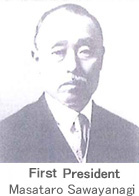
History of Taisho University
1926
Established in accordance with the old University Ordinance
(Faculty of Literature, Preparatory Course, Specialist School)
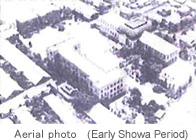
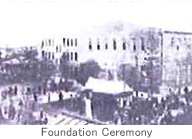
1949
Approved as Taisho University under the new education system
(Faculty of Buddhist Studies, Faculty of Literature)
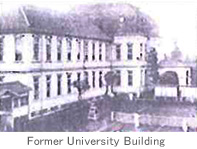
1951
Approval for establishment of graduate school master’s program
(Buddhist Studies, Religious Studies, Japanese Literature)
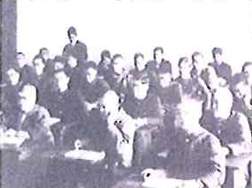
1956
Approval for establishment of graduate school doctorate program
(Buddhist Studies, Religious Studies, Japanese Literature)
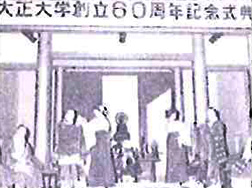
1957
Established Taisho University Buddhist Research Institute
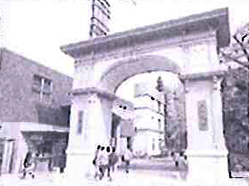
1963
Established Taisho University Counseling Research Center
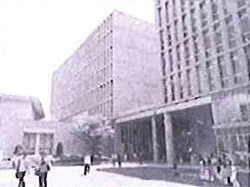
1968
Demolished Old School Building
(Driveway apron has been preserved in Meiji Village)
1976
Opened Saitama Campus
1993
Established two-faculty framework with Faculty of Human Studies and Faculty of Literature following restructuring
2001
Reverted to three graduate school research faculties (Faculty of Buddhist Studies, Faculty of Human Studies, Faculty of Literature)
2010
Established Faculty of Buddhist Studies and Faculty of Communication and Culture to form a four-faculty framework
2014
Opened the Institute of Regional Development for the purpose of conducting basic research for regional development and regional problem-solving as well as for promoting regional cooperation (intraregional and broad regional cooperation) and “co-creating” new value for regional development.
2016
Opened the Faculty of Regional Development offering a Bachelor of Economics for the purpose of cultivating human resources capable of creating new value for regional development and established the Faculty of Psychology and Sociology made up of departments in psychology- and sociology-related disciplines.
2017
Opened the first institute in Japan that engages in research pertaining to EM (Enrollment Management) and IR (Institutional Research).
2018
Established Jishu sect studies under the Buddhist Denominational Studies Course in the Department of Buddhist Studies, marking the addition of the Jishu sect to academics offered.
2020
Incorporated the new discipline of public policy studies and reorganized the preexisting Faculty of Human Studies to establish the Faculty of Socio-Symbiosis.
2023
Newly established four organizations as follows:
Organization for the Promotion of Academic Management
Organization for the Promotion of Relationship Management
Organization for Student Life Support
Organization for the Promotion of Religious Education and Buddhist Culture
2024
Reorganized preexisting faculties and departments as follows:
Faculty of Social Coexistence (Department of Public Policy, Department of Social Welfare)
Faculty of Psychology and Sociology (Department of Human Sciences and Department of Clinical Psychology)
Newly established departments and faculties as follows:
Department of Public Policy in the preexisting Faculty of Regional Development
Faculty of Human Studies (Department of Human Science, Department of Social Welfare)
Faculty of Clinical Psychology (Department of Clinical Psychology)
Established the Department of Media Expression in the Faculty of Expression.
2025
Opened the Institute of Information Sciences
